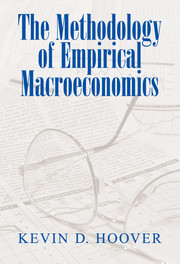1 - Some Methodological Problems in Macroeconomics
Published online by Cambridge University Press: 10 December 2009
Summary
A PHILOSOPHER IS TRANSFORMED INTO AN ECONOMIST
I began my academic career at the College of William and Mary in Virginia. I studied philosophy and was particularly interested in the philosophy of science. As is common in many American universities, I lived in college housing and had a roommate, who, as it happens, studied economics and is now also an economics professor. He used to tell me stories about how economists thought about the world, and I used to laugh and tell him how absurd economists must be. The story that sticks in my mind is the one in which businesses such as ice cream vendors on a beach (monopolistic competitors) are thought of as points distributed at regular intervals on a circle. Pretty silly – at least to one who had never thought for five minutes about competition. After taking my degree, I won a scholarship that allowed me to study at Balliol College, Oxford; and, more or less accidentally, I began to study economics and became hooked. But I came to economics with a philosopher's sensibility.
After taking another bachelor's degree at Oxford, I returned to the States and worked for the Federal Reserve Bank of San Francisco. Here the economics was entirely concerned with practical issues in monetary policy and macroeconomics. This was not long after Christopher Sims had popularized the use of Granger-causality tests in monetary economics. I recall my utter amazement at the power of econometrics to reduce a fraught question such as the nature of causality to a relatively simple test.
- Type
- Chapter
- Information
- The Methodology of Empirical Macroeconomics , pp. 1 - 16Publisher: Cambridge University PressPrint publication year: 2001



